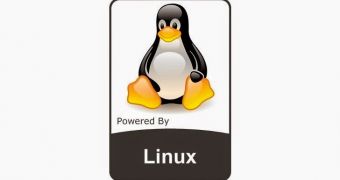The Windows 9-related news are making the rounds these days and there are all kind of rumors regarding the upcoming version of the operating system from Microsoft. The next couple of years will prove to be very interesting because Windows is no longer just trying to overcome semi-failed previous releases, but it will also needs to fight with an increasingly powerful Linux OS.
A few years back, Microsoft didn't have to worry about Linux as a real competitor and it treated the subject accordingly, with ignorance. It didn't really care about Linux because the company was actually right. This open source OS wasn't capable of fighting with Windows, at least on a few fronts.
One of the most important features that actually powers Windows OS is accessibility, but from the perspective of a regular user. Everybody is doing software for Windows, so most of applications worked easily and they could be installed easily.
Drivers and other components were easy to install, and despite the inherent instability of the Windows systems that provide those lovely blue screens of death, Microsoft managed to power on. It did a lot of things right and they were able to please the user base with a desktop that evolved without changing too much.
That all changed with Windows 8. Sure enough, the system was a little bit more secure (not by much), but the new desktop experience alienated a lot of users. The one bold and interesting thing that came out the their hands was not well received.
Now there are talks about a new system, Windows 9, that is supposed to fix some of the problems and issues that users faced in Windows 8. There is nothing wrong with this picture, but there is a problem with the users. It's way too fast.
Linux users are used to get new versions of their favorite operating system almost on a regular basis, like Fedora or Ubuntu, but Windows users hold on to their OSes for a much longer time. In fact, Microsoft is having a hard time convincing people to stop using Windows XP, an OS launched in 2001, which is almost 14 years ago. How are they going to convince people to upgrade from an operating system that was released a couple of years ago?
One of the methods would be to provide any new upgrades for free, but that hasn't been confirmed yet. At worst, it would cost a measly sum to upgrade, but the market is no longer the same.
This time, the Linux OSes are all over the place and they are actually a real competitor for Windows. They are still not powerful enough to go toe to toe on some levels, like gaming for example, but it’s making big strides.
The speed of innovation on Linux is simply staggering. More and more companies are releasing their software on the Linux platform and the gap between the two platforms is shrinking in this regard. From a gaming point of view, Linux and Windows systems will be on par in a couple of years, close enough so that you can't really tell which one is running games better.
The younger generation of people is looking for alternatives to the old systems and they find that Linux OSes are easier to install and use than they would imagine. All of these changes are happening now.
The landscape for the market is changing. Microsoft is still working on Windows like it's the only major operating system available, but that is no longer the case. Sure enough, the Linux desktop market share is still very small, but that will change so soon it will make the heads of the Microsoft CEOs spin.
Windows 9 will have in Linux a fierce competitor, but the edition after that one will have to do so much better or else it will fail terribly. Linux is not standing still and it's shaping the Windows' future, whether Microsoft can see it or not.

 14 DAY TRIAL //
14 DAY TRIAL //